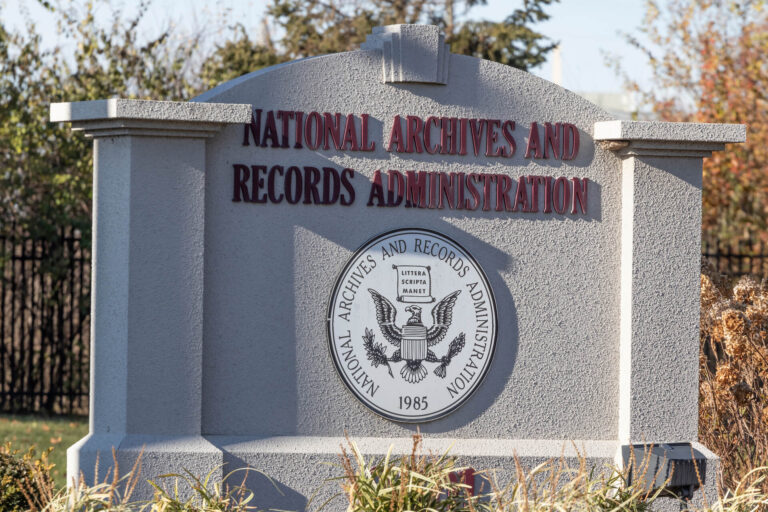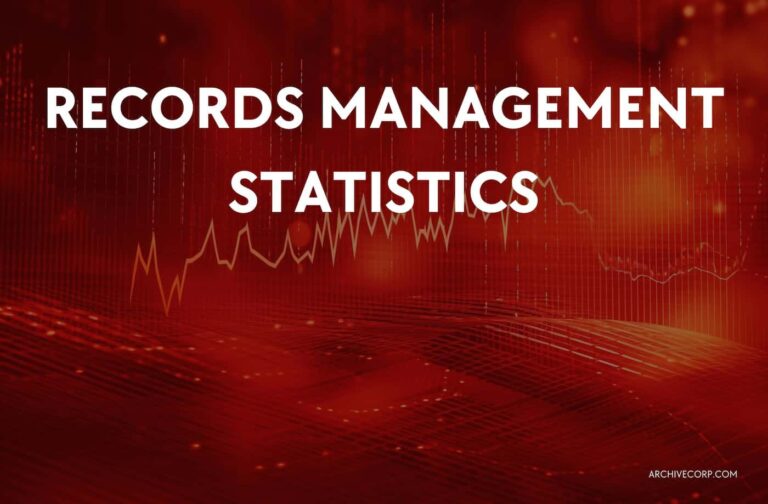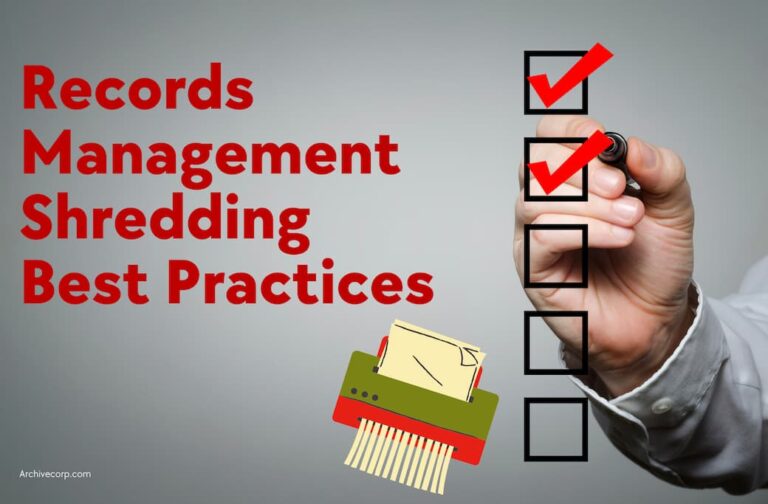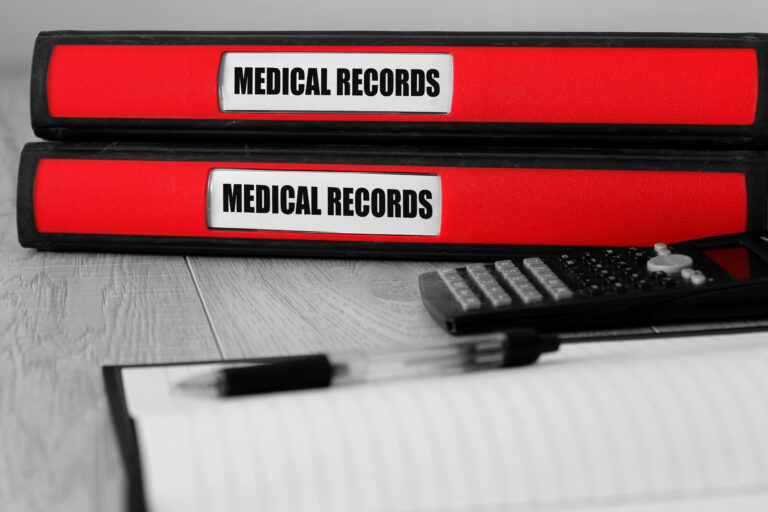What is Records Archiving?
The overall goal of records archiving is to plan and organize the storage of important documents and/or data. This procedure is important because it keeps information safe, easy to access, and retrievable whenever you require it. With records archiving, data is stored from an active storage area to a different area where it’s held until it’s needed in the future.
Many companies use records archiving as a way of maintaining accurate records of all of their business operations. Companies can easily store all of their documents and materials in a secure but accessible location while lowering the chances that their documents will end up becoming lost or damaged.
Some of the types of records that companies archive are:
- Customer data
- Employee records
- Financial records
- Legal documents
These records also come in various formats, such as microfilm, paper documents, and electronic files.
In this article, we’ll talk about the importance of records archiving, along with some key differences between archiving and backup management. We’ll also highlight some of the data archiving tools available.
Why Is Archiving So Important?
Archiving is important for many reasons, and if a company doesn’t pay attention to its records archiving procedures, it can end up dealing with legal issues, a poor reputation, and even experience financial concerns.
Long-term protection: Records archiving is a great way at keeping sensitive and important data protected for the foreseeable future. At the same time, the data is accessible when it’s needed the most. When you have secure records management and archiving, you don’t have to worry about your data all of a sudden going missing from things like computer failure, accidental deletion, or natural disasters.
Legal complications: A lot of companies are required to hold onto certain records, and if they don’t retain them, they could end up dealing with hefty fines and penalties. A records archiving system will prevent this from happening and ensure the company is in full compliance with the law.
Better operations: Companies can use historical records to get a better idea of certain patterns in their operations. They can use this data to forecast improved business operations in the future. By doing this, companies will be able to stay more competitive in their industry while also adapting to the ever-changing conditions of the market.
Understanding The Difference Between Archiving & Backup
Records archiving and backup sometimes seem like similar things, but their purposes are a bit different.
Backup: With backup, you’re creating actual copies of data that you can access and use if a negative event occurs, such as system failure. Backups are always duplicated and then put away in a safe and secure location in case they are needed. Backups are more of a short-term method of keeping sensitive data protected. As more recent backups are created, the old ones are overwritten.
Archiving: Archiving, on the other hand, is storing data for the long-term future while making sure it’s still accessible. In archiving, you’re physically moving data from an active location to a final resting spot. This is more of a permanent solution in comparison to backups because archives are seldom deleted.
It’s important to use a combination of both of these methods because you want to ensure your information is secure at all times. You should be using backup solutions as a short-term solution, and archives as a long-term solution. By utilizing both of these methods, you can ensure your data will remain safe and secure in the present and the future.
There are a couple of backup strategies that companies can take advantage of to make sure their information is protected.
Full backups: With full backups, you’re copying all of your data and information and transferring it to a safe and secure location.
Incremental backups: Incremental backups are all about making copies of any of the data that’s been changed since the last backup was created. These backups don’t take as long as full backups because you’re backing up smaller amounts of data. For example, if a company makes a full backup on Wednesday, incremental backups would be on Thursday and Friday.
Differential backups: Differential backups closely resemble incremental backups in the way that data is backed up more often. The main difference with differential backups is that the data is backed up from the last complete backup instead of just the last incremental backup.
Data Archiving Tools
Tools used to help companies store and maintain huge amounts of data for the long term are known as data archiving tools. These tools are important for companies that need to keep data stored for legal purposes and compliance. There are many data archiving tools that companies can take advantage of, and each one has a specific situation where it excels in comparison to the other tools.
Tape
Tape is a data archiving tool that’s been in use for many years. With this tool, you’re copying data onto magnetic tape. Once the copying is finished, the tape is placed into a secure area. Two of the highlighted features of tape are its reliability and its durability. Tape can go a long time without companies having to worry about any damage or corruption to it. Another benefit of tape is that it’s more affordable compared to the other data archiving options.
Cloud
Cloud-based data archiving may be a little more expensive than the other methods, but it’s also the most flexible option. With this archiving method, you’re storing data on a remote server that’s then managed by a third-party provider. A lot of companies like this method because it’s scalable. As a company grows, they typically require more storage, and when they do, they can easily just purchase more. Another feature of cloud-based data archiving is how easily accessible it is. You can access your data from anywhere where you have an internet connection.
Disk
With disk archiving, you’re moving your data onto physical drives. This is a quick and affordable option that many companies can take advantage of. It’s also the most straightforward and easiest to do. If you ever end up running out of disk space for storage, you can just go buy more disks. One thing to note about disk archiving is that it can tend to get expensive if you end up requiring a lot of storage space.
Hard Drives
Hard drives are a common option for storing data, and a wide variety of companies like this method because it’s cost-efficient and has good portability. After data is moved onto a hard drive, you can store it in a safe and accessible area. While the advantages of hard drives are attractive, the major drawback of hard drives is that they’re typically not as durable as other methods of storage. Data corruption is also a concern that needs to be considered.
External hard drives are widely used for copying and storing data. Many individuals and companies use this method because it’s affordable, portable, and easy. Once data is copied to the hard drive, it can then be stored in a safe and accessible location.
The Top 3 Benefits of Records Management for Your Growing Businesses
Records management can help businesses grow in a number of ways:
- Better organizational management over your data as your company grows
- You can analyze the data of the past to forecast and prepare for the future
- It encourages collaboration with employees because everyone has access to the same data
Here are the top 3 benefits of records management:
Compliance
When companies begin to expand and grow, so do the regulatory requirements and legal challenges. Without complying with legal and regulatory requirements, it can result in pricey fines. With accurate and reliable records management, companies won’t have to worry about the risks of not having data stored when the time comes that the data is required.
Productivity
Good records management can help companies keep their data organized and accessible. That means more productivity in the workplace instead of employees scattered around trying to locate data from a decade ago. Proper data management can help companies streamline their work operations like functional, well-oiled machines.
Security
Security is one of the most significant benefits of records management. You won’t have to worry about your data ever going missing due to cyber attacks, natural disasters, or hardware issues.
Need Help Managing Your Records?
To successfully grow your business, proper records archiving is required. No business wants to deal with the risk of data loss that can end up causing a damaged reputation and even legal problems.
That’s where Archive Corporation comes in. As a family-owned and operated records management company with 40 years of experience, we offer a range of data management services, including secure and reliable storage, document scanning and indexing, and secure destruction services. Contact us today to learn more about how we can help you prioritize records archiving and management so that you can focus on growing your business.




![The Ultimate A-Z Records Management Checklist [2023]](https://www.archivecorp.com/wp-content/uploads/2023/06/records-management-checklist-archivecorp-1-768x504.jpg)


